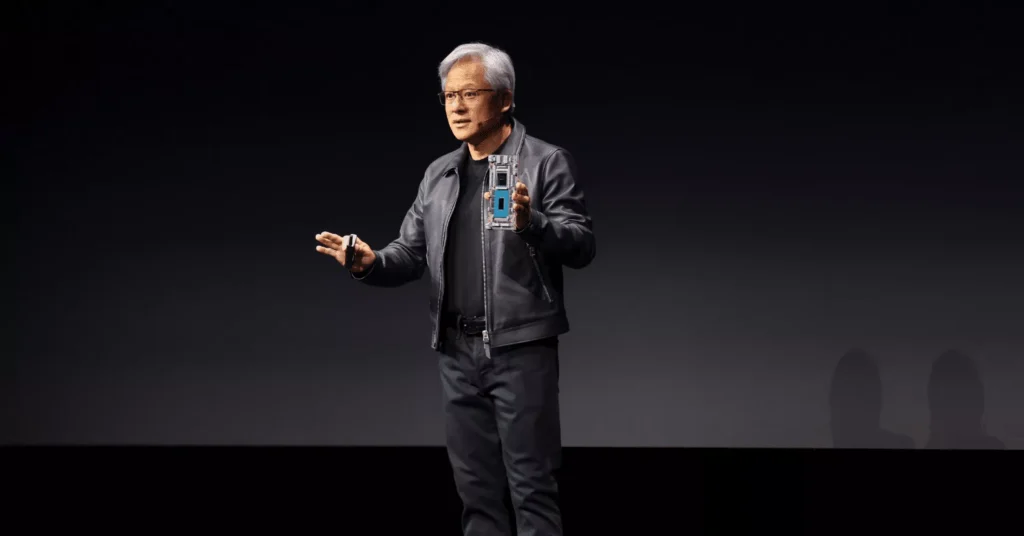Exporting Nvidia’s H20 chips to China was “excellent” for Beijing and Washington and not a security risk, the tech giant’s CEO said Friday.

The San Jose, California-based firm makes some of the world’s most sophisticated semiconductors but is unable to export its most advanced chips to China because of fears in Washington that Beijing will use them to boost military might.
Nvidia created the H20 — a cut-down version of its AI chips — to export specifically to China.
That idea was put on hold when the Trump administration imposed stricter export licensing rules in April.
The H20 was “not a national security concern,” Jensen Huang told journalists in Taipei, calling the chip “great for America” and “great for the Chinese market.”
Huang maintained that there were “no security backdoors” in the H20 chip for remote access, following China summoning company officials to address security concerns.
“We’ve made it very clear and put to rest that H20 doesn’t have any security backdoors, there are no such things, there never has, and so hopefully the reaction that we’ve taken to the Chinese government will be adequate,” Huang said.
He dodged a question regarding reports that Nvidia would compensate the United States 15% of its revenues from the sales of H20 chips to China, which was confirmed last week by US President Donald Trump.
Instead, Huang thanked the Trump administration for approving the shipping of the chips to the Chinese market.
“The need I think is pretty huge and so the capacity to deliver products to, H20s to China, is greatly valued,” the CEO said.
Huang also indicated Nvidia is negotiating with the US government regarding a new chip for China.
“A new product to China, data center, AI data centers, follow on to H20, that’s not our call to make. It’s up to, of course, the United States government, and we’re in discussion with them but it’s too early to know,” he said.
Huang sat down with Trump at the White House this month and consented to provide the federal government the share from its revenues, a very rare deal in the global tech commerce, based on reports in the Financial Times, Bloomberg and The New York Times.
Investors are wagering that AI will reshape the world economy, and last month Nvidia — the planet’s most valuable firm and a preeminent AI chip designer — became the first firm to ever reach $4 trillion in market capitalization.
The company has, however, got caught up in a spat between China and the United States, which are engaged in a fierce struggle to become the dominant force for making the chips that drive AI.
It is at a time when the Trump administration has been slapping tough tariffs, ranging from trying to balance US trade deficits, wishing to bring manufacturing back on shore and pushing foreign governments to modify policies.
A 100% tariff on most semiconductor imports went into effect this month, exempting tech firms announcing significant investments in the United States.